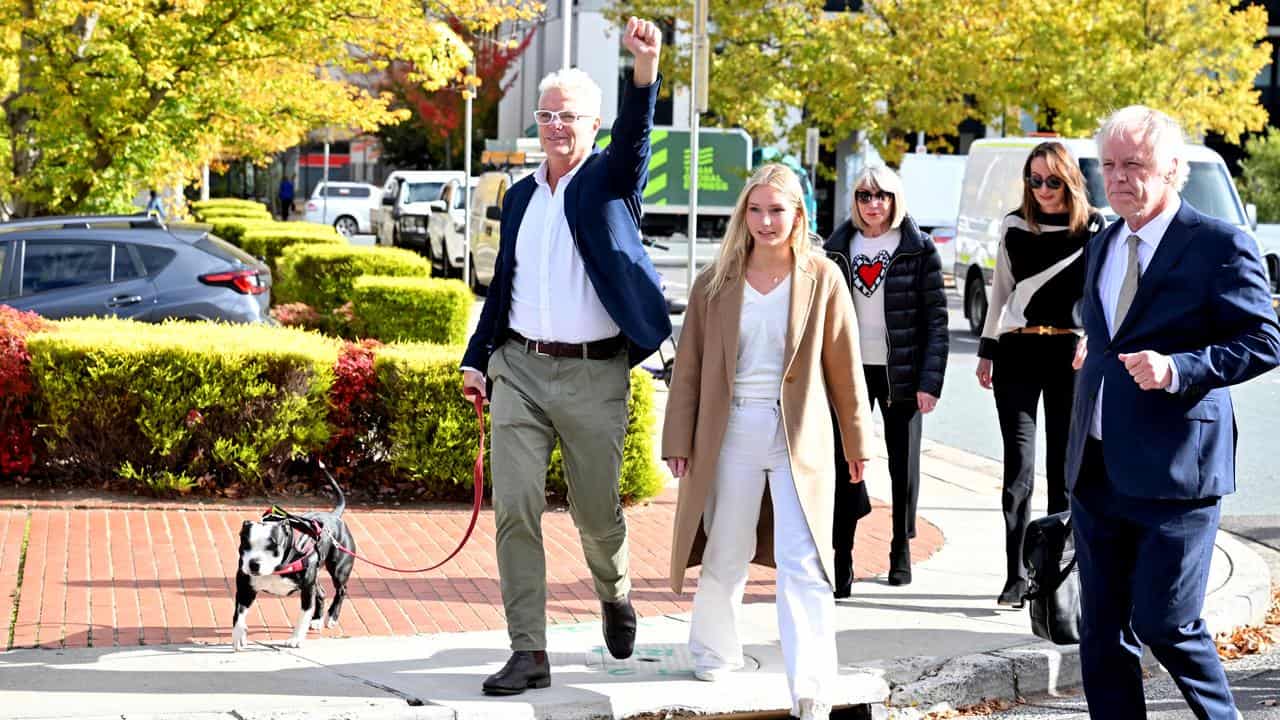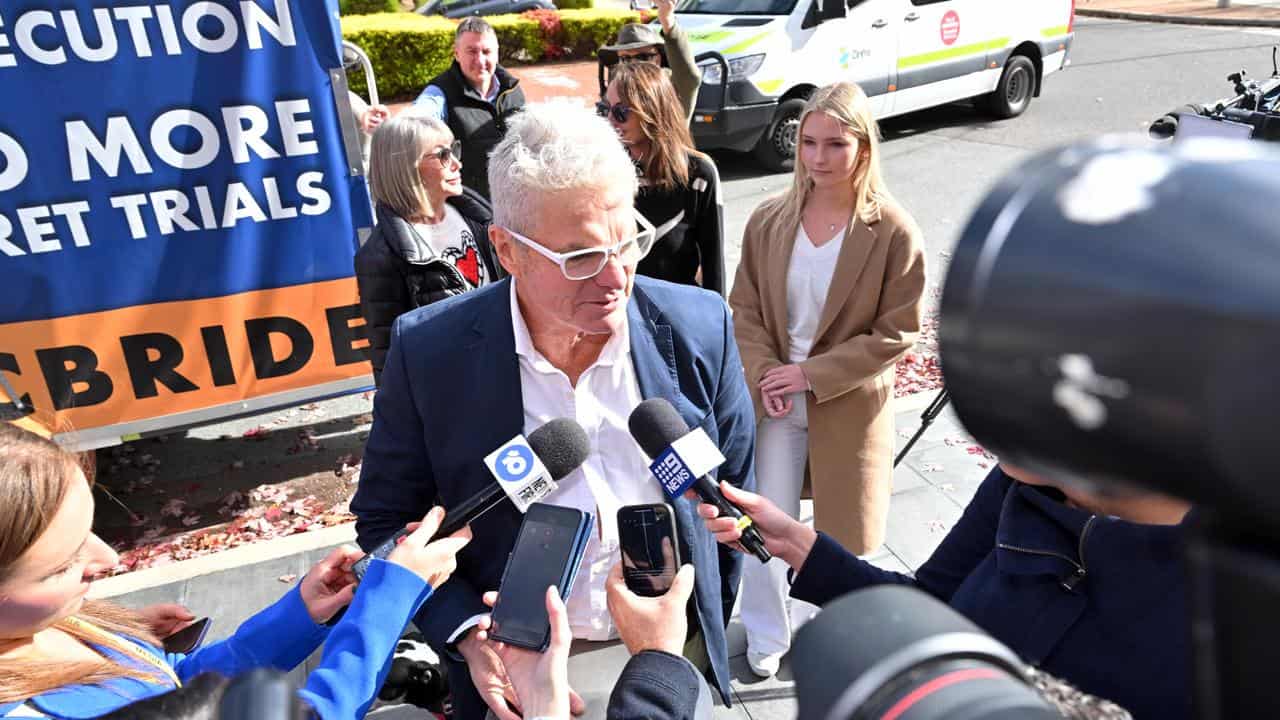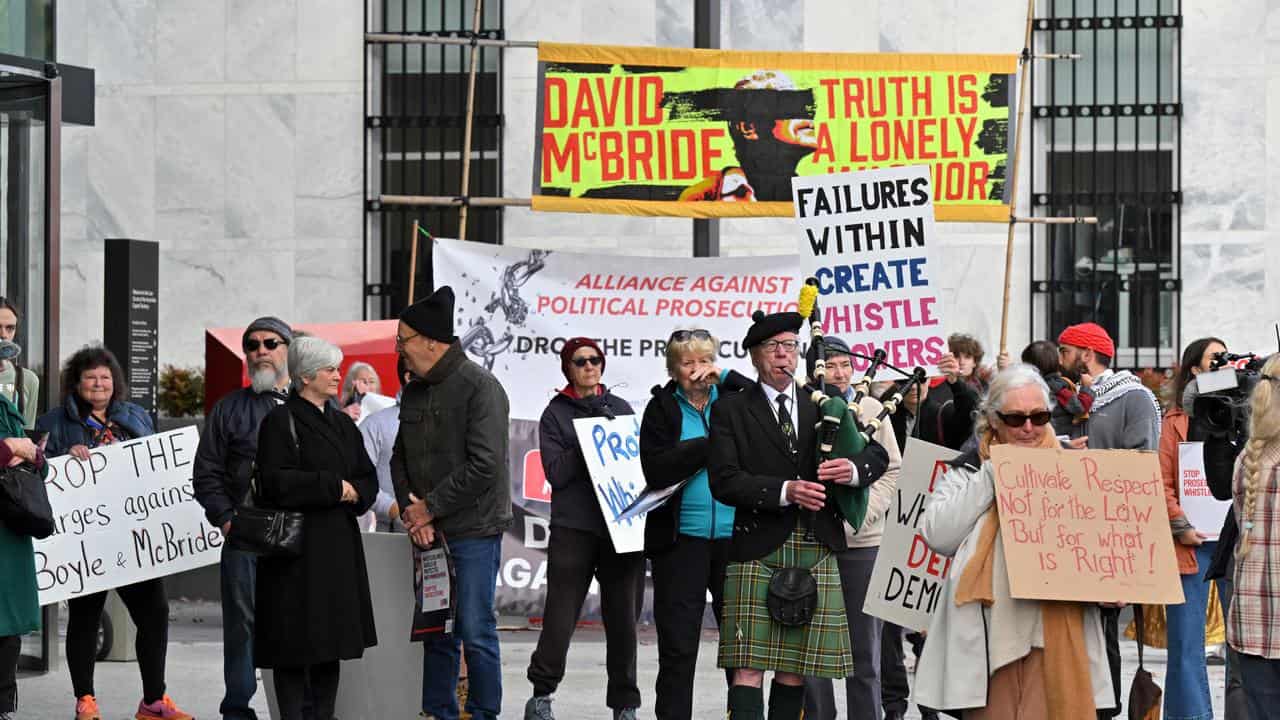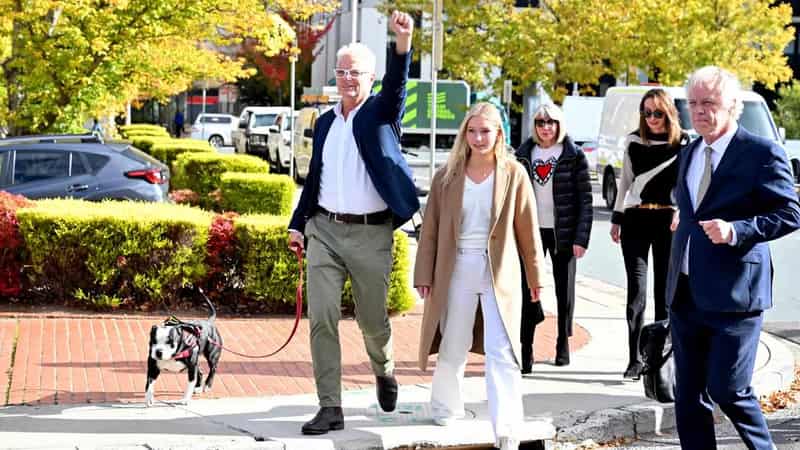
A former military lawyer who helped expose allegations of war crimes by leaking classified documents is asking a judge for leniency but prosecutors want him to spend at least two years behind bars.
David McBride pleaded guilty to three offences including stealing commonwealth information and passing it onto journalists.
Justice David Mossop heard arguments in the ACT Supreme Court on Monday about the severity of the crime and McBride's motivation as he determines what punishment to hand down.
McBride's barrister Stephen Odgers SC argued he disclosed the sensitive documents because of a commitment to the public interest.
McBride felt he had a duty to go public with the information as he believed soldiers were being unduly investigated for actions that weren't war crimes as a "PR exercise" so the department could say it was doing something, Mr Odgers said.
The sensitive documents were initially only collected to back up a complaint he would make to the Inspector-General of the Australian Defence Force, Mr Odgers contended.
McBride's “impaired emotional wellbeing” because of PTSD and substance abuse as well as his sense of duty then compelled him to go to a journalist and have senior officials investigated when he believed his complaint wouldn't go anywhere.
"Good soldiers were put through serious trauma, that was his complaint," Mr Odgers said.
"His goal was to get somebody to investigate properly his suspicions of criminality."
McBride knew he was breaking internal defence codes and would face disciplinary actions but didn't think he was committing a criminal offence as a court would find he acted in the public interest, his barrister said.

“While ignorance of the law is no excuse, it lessens culpability” he said, referring to comments in a Queensland case.
Parts of character references from former army commanders, family members and law school classmates were heard in court, with each lauding McBride's empathy, sense of duty and “honour and passion for justice”.
Prosecutor Trish McDonald argued McBride's disclosure of classified information was serious because it endangered national security and breached his responsibility as a lawyer and senior defence official.
Neither the inspector-general nor Australian Federal Police substantiated his claims of criminality within the department's highest ranks, she said.
She pushed for McBride to spend at least two years behind bars to reflect the severity of his crimes.
A suspended sentence or a corrections order that allowed the sentence to be served in the community weren't appropriate given the seriousness of the offences, she said.
Ms McDonald contended his mental health didn't substantially affect his judgment because McBride maintained he did the right thing after he became sober.
The prosecutor argued there was no need for McBride to keep the documents at home as he was crafting his application to the inspector-general at work and with the knowledge of his superiors.
At no time was a specific criminal offence outlined during various disclosures, she said.
“His justification isn’t clear, what his issues were changed, they weren’t described in any substantial detail," she told the court.

Ms McDonald called on the judge to take into account the time of offending, with McBride taking documents between 2014 and 2015.
A total of 235 documents were taken, with 207 classified as secret.
McBride maintained he didn't regret shining a light on wrongdoing.
Outside court, where demonstrators rallied to support the whistleblower, he was asked how he would like to be seen.
"As someone who stood up for Australian values," he told reporters.
The leaked documents led to reports about Australian special forces soldiers committing alleged war crimes.
An inquiry later found credible information about 23 incidents of potential war crimes, which involved the killing of 39 Afghans between 2005 and 2016.
Justice Mossop will deliver his decision on May 14.
Lifeline 13 11 14
Open Arms 1800 011 046









